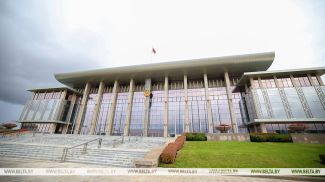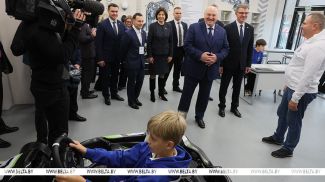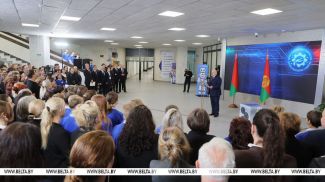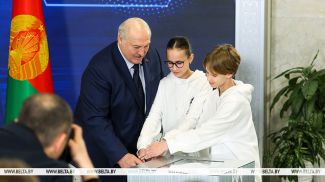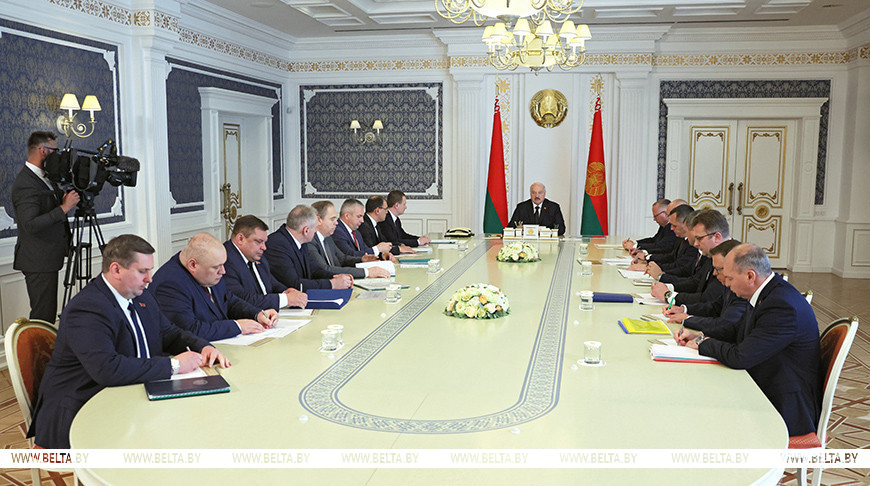
MINSK, 22 July (BelTA) - The domestic oil industry needs to increase exploration and development of new deposits in the country, Belarusian President Aleksandr Lukashenko said at a meeting to discuss production of hydrocarbons in the country, BelTA has learned.
The head of state stressed the importance of developing the domestic mineral resource base, its effective use and intensive development of domestic oil deposits. “We thoroughly discussed the issue. It is not just oil and gas. This also pertains to our other mineral reserves,” Aleksandr Lukashenko said.
“This year plans are in place to reach [the extraction of] two million tonnes of oil. These are good figures, but what do we have in the perspective? How will we continue to ensure the intensity of geological exploration and development of new deposits?” the head of state asked.
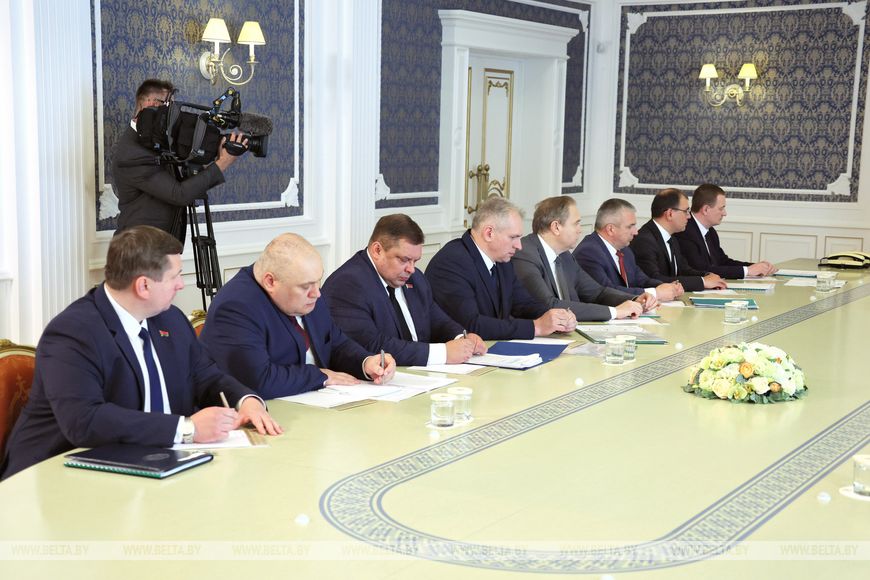
In his words, the government has prepared a plan for geological exploration. “However, the deadlines for its implementation are, as usual, long. Until 2030,” the president said.
The head of state also has questions for the Research and Production Center for Geology: “Nearly Br35 million has been invested in upgrading the material and technical base in recent years. Yet, the actual pace of exploration for new deposits remains low.”
For instance, from 2021 to May 2025, only four exploratory wells have been drilled, with just one completed this year. In 2024, the increase in oil reserves amounted to 91,000 tonnes (twice the level of 2023). The plan for 2025 is set at a lower volume - only 70,000 tonnes, or 77% of the 2024 level.
“This means that in our plans and concrete actions we have already started to decline again. Why is this drop happening?” Aleksandr Lukashenko asked.
“I know for sure that we have reserves here. Therefore, it is necessary not to procrastinate, but drill and drill. But we need to drill wisely and with the use of new technologies! Any drilling, any geological exploration must be justified,” the Belarusian leader stressed.
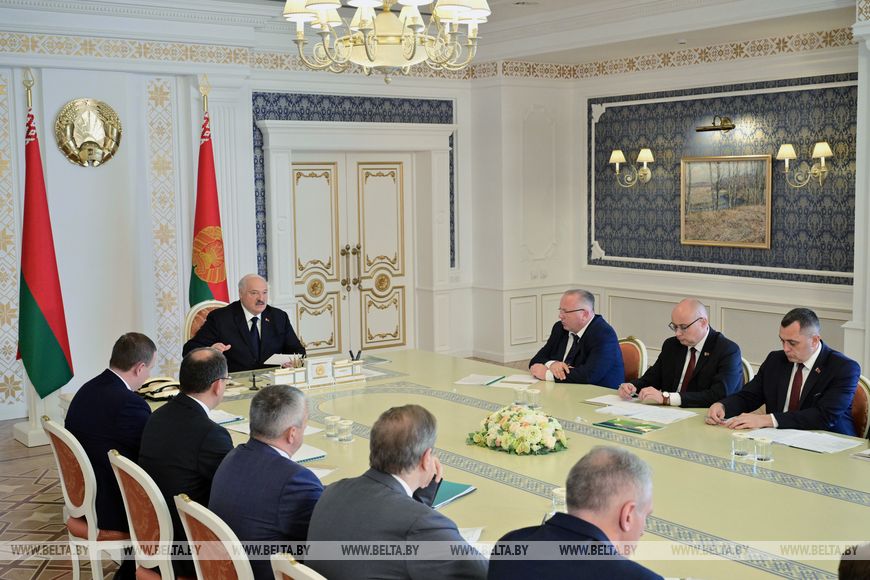
In this regard, he asked scientists and the Research and Production Center for Geology under the Ministry of Natural Resources and Environmental Protection why some wells handed over to the oil production company were left unused. “The wells which you think have oil. Belorusneft either rejected them or concluded that there was no oil there,” Aleksandr Lukashenko said.
The president demanded that the National Academy of Sciences, the Research and Production Center for Geology, and Belorusneft work in close coordination: “We do not have that much oil. The country is relatively small, so there is nothing to divide here.”
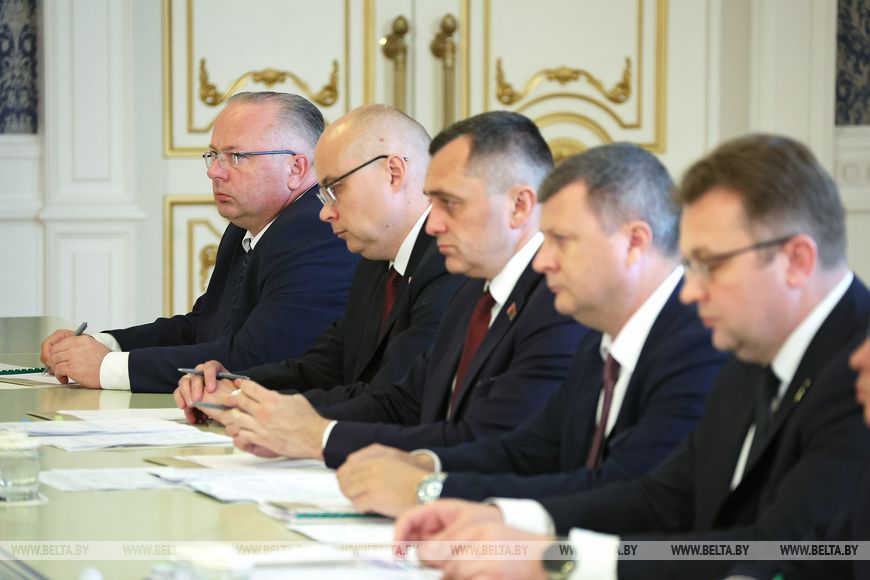
“There are no, and cannot be, unimportant industries in Belarus. Domestic oil production is not only a key element of the country’s energy security but also a source of raw materials for high-value-added export products,” Aleksandr Lukashenko said.
He asked the meeting participants to report on the prospects of oil production industry in the country; whether there is scientific and economic justification for the chosen strategy; the status of other oil-bearing regions beyond the Pripyat Trough; whether exploration and oil production are sufficiently equipped with technology, and especially personnel; and on how existing problems are addressed and why corruption cases have not been eliminated.
Aleksandr Lukashenko cited data showing that Belarus currently has five large and medium-sized oil deposits and 91 small and very small fields, as classified by industry experts. Most of them are part of the Soviet legacy.
“Global practice shows that in order to maximize the efficiency of geological exploration, which is a very costly endeavor, production starts with the largest reserves first, and then moves to smaller ones,” the head of state said.
In his words, Belarusian oil deposits were intensively exploited during the Soviet era, when production peaked at about eight million tonnes per year. After gaining independence, this work continued. However, as large and medium-sized fields became depleted, production declined, reaching as low as 1.6 million tonnes in 2016. “I saw this decline happening, and at that point, I decisively tasked the head of our company with reaching at least two million tonnes,” the president said.
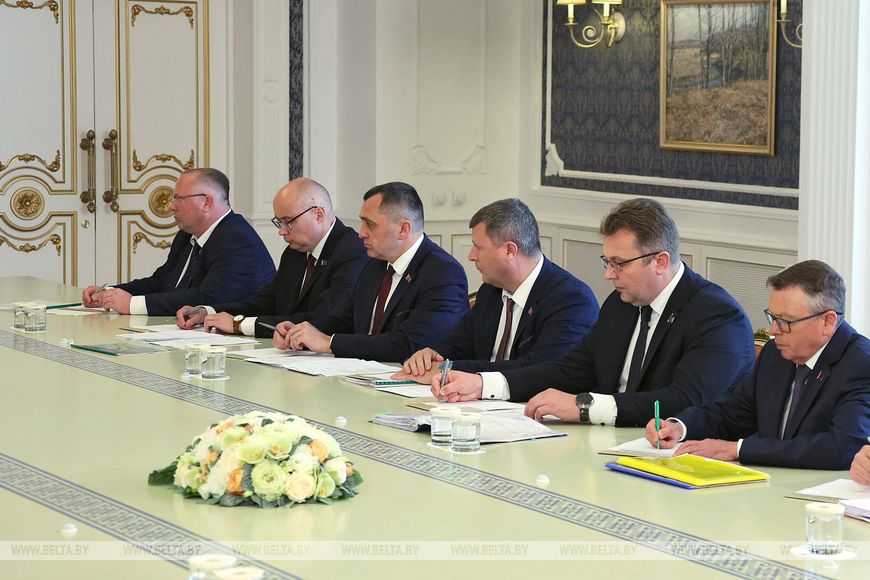

The head of state stressed the importance of developing the domestic mineral resource base, its effective use and intensive development of domestic oil deposits. “We thoroughly discussed the issue. It is not just oil and gas. This also pertains to our other mineral reserves,” Aleksandr Lukashenko said.
“This year plans are in place to reach [the extraction of] two million tonnes of oil. These are good figures, but what do we have in the perspective? How will we continue to ensure the intensity of geological exploration and development of new deposits?” the head of state asked.

In his words, the government has prepared a plan for geological exploration. “However, the deadlines for its implementation are, as usual, long. Until 2030,” the president said.
The head of state also has questions for the Research and Production Center for Geology: “Nearly Br35 million has been invested in upgrading the material and technical base in recent years. Yet, the actual pace of exploration for new deposits remains low.”
For instance, from 2021 to May 2025, only four exploratory wells have been drilled, with just one completed this year. In 2024, the increase in oil reserves amounted to 91,000 tonnes (twice the level of 2023). The plan for 2025 is set at a lower volume - only 70,000 tonnes, or 77% of the 2024 level.
“This means that in our plans and concrete actions we have already started to decline again. Why is this drop happening?” Aleksandr Lukashenko asked.
“I know for sure that we have reserves here. Therefore, it is necessary not to procrastinate, but drill and drill. But we need to drill wisely and with the use of new technologies! Any drilling, any geological exploration must be justified,” the Belarusian leader stressed.

In this regard, he asked scientists and the Research and Production Center for Geology under the Ministry of Natural Resources and Environmental Protection why some wells handed over to the oil production company were left unused. “The wells which you think have oil. Belorusneft either rejected them or concluded that there was no oil there,” Aleksandr Lukashenko said.
The president demanded that the National Academy of Sciences, the Research and Production Center for Geology, and Belorusneft work in close coordination: “We do not have that much oil. The country is relatively small, so there is nothing to divide here.”

“There are no, and cannot be, unimportant industries in Belarus. Domestic oil production is not only a key element of the country’s energy security but also a source of raw materials for high-value-added export products,” Aleksandr Lukashenko said.
He asked the meeting participants to report on the prospects of oil production industry in the country; whether there is scientific and economic justification for the chosen strategy; the status of other oil-bearing regions beyond the Pripyat Trough; whether exploration and oil production are sufficiently equipped with technology, and especially personnel; and on how existing problems are addressed and why corruption cases have not been eliminated.
Aleksandr Lukashenko cited data showing that Belarus currently has five large and medium-sized oil deposits and 91 small and very small fields, as classified by industry experts. Most of them are part of the Soviet legacy.
“Global practice shows that in order to maximize the efficiency of geological exploration, which is a very costly endeavor, production starts with the largest reserves first, and then moves to smaller ones,” the head of state said.
In his words, Belarusian oil deposits were intensively exploited during the Soviet era, when production peaked at about eight million tonnes per year. After gaining independence, this work continued. However, as large and medium-sized fields became depleted, production declined, reaching as low as 1.6 million tonnes in 2016. “I saw this decline happening, and at that point, I decisively tasked the head of our company with reaching at least two million tonnes,” the president said.
With the development of seismic exploration methods and optimization of field development systems, annual well drilling has increased 2.5 times since 2015. In 2024, 285,000 meters were drilled, ensuring a positive production trend, with an average annual increase of 20,000 tonnes.






